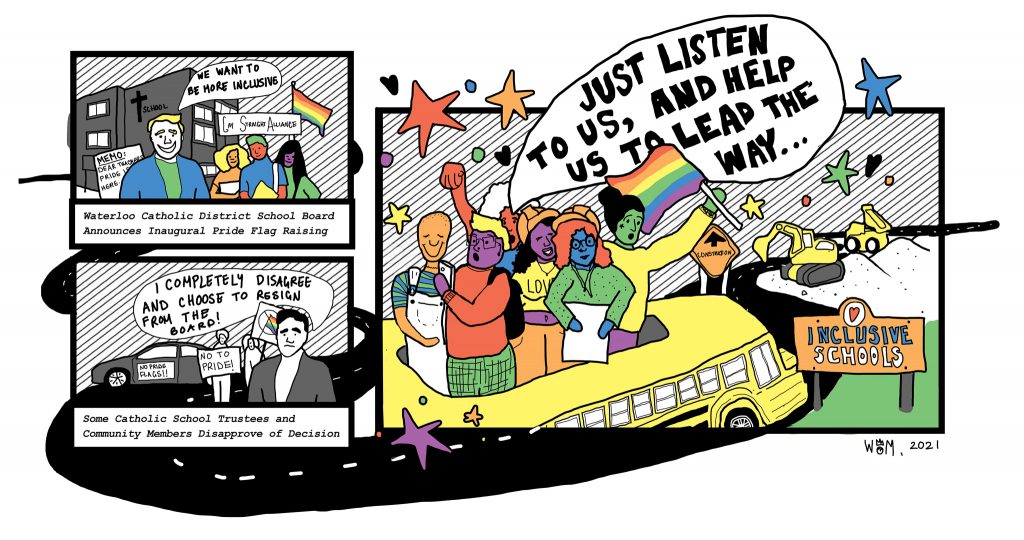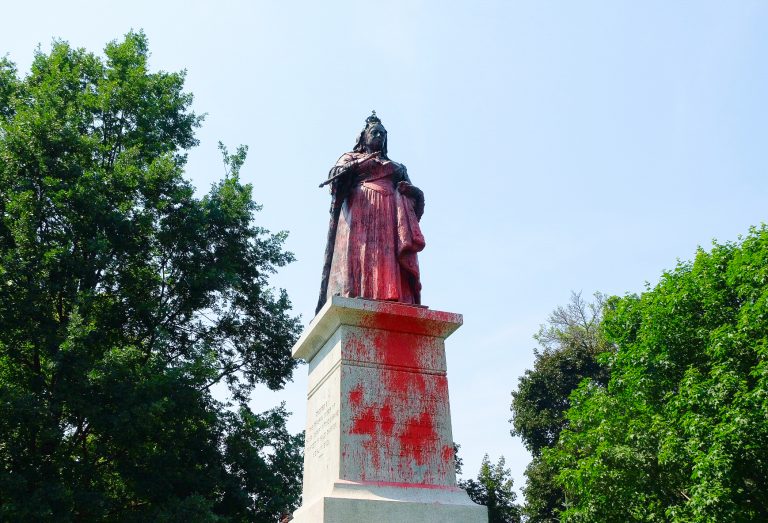June is a big month for performative allyship.
Every year we see companies displaying Pride flags in their logos, despite the fact that they have done absolutely nothing to support the community all year long. So, when was the last time you asked yourself if your allyship is causing more harm than good?
If your solidarity with communities working for justice is worth anything to anyone, then it should be constantly checked and reflected upon to flesh out areas in need of change.

Below are some points to reflect upon when doing a solidarity check on your allyship practices.
1. Are you working from a place of pity, discomfort, guilt or shame?
Nobody wants any of that. There is privilege in your pity, your guilt and your shame. When you need to move something that’s too heavy for you to move on your own, do you want people to feel bad for you because you’ll never move it on your own or do you want someone to help you move it?
Recognize that your feelings take up much needed space. Are you challenging your comfort zone when it comes to confronting injustice, or are you upholding the status quo by defining yourself as a ‘safe person’ without doing anything to make your society safer. Are you expecting to be taught? To have your hand held? For there to be space for your tears?
2. Are you listening to the community?
Are you listening to folks with lived experience? To the folks that identify themselves as being part of a marginalized community? Or are you listening to the ‘experts’ of these topics? If you can’t understand why it would be necessary to listen to folks with lived experience, ask yourself why we still have racial discrimination occurring in places of employment when we have known it to be an issue for more than 50 years. It’s certainly not because we’re unaware that unconscious bias exists.
These injustices are still occurring because in most organizations the folks coming up with the policies and procedures for dealing with racial discrimination have no lived experience and don’t identify as racialized.
If the people at the top of your organization are asked to identify policies and procedures that exclude people, ask yourself: how they are supposed to do that if they’ve never been excluded? You can have an awareness about how the health-care system excludes Indigenous folks from care but if you don’t work in the field and have lived experience, the likelihood of you being able to identify the policies and procedures that are resulting in exclusions is going to be very low. You’d be guessing. I work for an organization that provides emergency shelter to folks experiencing homelesness and yet I see an organization staffed with people who have absolutely no understanding of what it means to be poor or experience being excluded because they are poor. The fact that nobody at my place of employment identified a policy that prohibits folks from working at another shelter, while only being assigned a few shifts per month, as being exclusive may be because those creating policy have never needed to make career decisions based on a lack of economic privilege.
A fundamental part of meaningful allyship is shelving your ego and making the focal point the communities’ perception of the work. Only the community can make strategy for change, define someone as an ally, decide whom they wish to align with, and who they trust. Performative allyship is putting on display some sort of symbol or marker that makes claims about your allyship that aren’t supported by your actions.
3. Are you centering the work and the community?
If you are here because you want social gratification and something to post, then you are doing allyship wrong and you’re probably hurting the cause you claim to care about. Ask yourself, who am I trying to make feel good with what I’m doing? Who am I empowering? Are these acts for me? For my pride? You can identify performative allyship by asking yourself if you would be doing the same thing if nobody were to see or hear about what you’re doing. You can flesh out whether you are centering the work by examining whether you are leveraging resources or being selective with who you pull in. Centering the community means what you’re doing isn’t creating dependency on your support or “professionalizing” activism. Creating dependency is harmful and occurs when you’re offering a service that makes you the gatekeeper of the service instead of the community. Professionalizing activism occurs when you reinforce or promote the idea that paternalistic knowledge is needed to help people. Deeply reflect on how much of your work is motivated by funding and ask yourself whether you have compromised radical work because it may affect funding elsewhere. Finally, ask yourself if you are willing to betray your organization to further struggles for justice. But if you are, are you aware of the immense privilege you have to not be completely financially dependent on your job?
4. Are you checking your privilege and acknowledging your positionality?
The vulnerability that comes with confronting privilege is incredibly uncomfortable. Are you actively rejecting the benefits that come with your privilege? If you come to the work or the community as an expert, are you acknowledging the fact that your awareness comes from a paternalistic institution and is therefore rooted in eurocentric knowledge? If you’re not attacking colonial structures, systems, perceptions and ideas then you are upholding systems of oppression.

